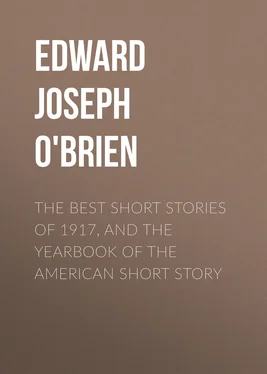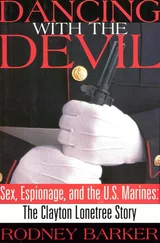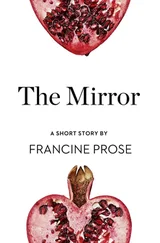Edward O'Brien - The Best Short Stories of 1917, and the Yearbook of the American Short Story
Здесь есть возможность читать онлайн «Edward O'Brien - The Best Short Stories of 1917, and the Yearbook of the American Short Story» — ознакомительный отрывок электронной книги совершенно бесплатно, а после прочтения отрывка купить полную версию. В некоторых случаях можно слушать аудио, скачать через торрент в формате fb2 и присутствует краткое содержание. Издательство: Иностранный паблик, Жанр: foreign_prose, literature_20, foreign_antique, на английском языке. Описание произведения, (предисловие) а так же отзывы посетителей доступны на портале библиотеки ЛибКат.
- Название:The Best Short Stories of 1917, and the Yearbook of the American Short Story
- Автор:
- Издательство:Иностранный паблик
- Жанр:
- Год:неизвестен
- ISBN:нет данных
- Рейтинг книги:3 / 5. Голосов: 1
-
Избранное:Добавить в избранное
- Отзывы:
-
Ваша оценка:
- 60
- 1
- 2
- 3
- 4
- 5
The Best Short Stories of 1917, and the Yearbook of the American Short Story: краткое содержание, описание и аннотация
Предлагаем к чтению аннотацию, описание, краткое содержание или предисловие (зависит от того, что написал сам автор книги «The Best Short Stories of 1917, and the Yearbook of the American Short Story»). Если вы не нашли необходимую информацию о книге — напишите в комментариях, мы постараемся отыскать её.
The Best Short Stories of 1917, and the Yearbook of the American Short Story — читать онлайн ознакомительный отрывок
Ниже представлен текст книги, разбитый по страницам. Система сохранения места последней прочитанной страницы, позволяет с удобством читать онлайн бесплатно книгу «The Best Short Stories of 1917, and the Yearbook of the American Short Story», без необходимости каждый раз заново искать на чём Вы остановились. Поставьте закладку, и сможете в любой момент перейти на страницу, на которой закончили чтение.
Интервал:
Закладка:
The old man slanted a keen glance in Mr. Quarles' direction.
"Tell me, son," he asked softly, "how did you come to hear the glad tidin's so promptly?"
"Me?" said Mr. Quarles innocently. "Why, Judge Priest, the word is all over this part of town by this time. Why, I reckin twenty-five or fifty people must 'a' been watchin' Old Peep to see how he was goin' to act when he come out of this courthouse."
"Well, well, well!" murmured the Judge blandly. "Good news travels almost ez fast sometimes ez whut bad news does—don't it, now? Well, son, I give up the riddle. Tell me jest whut our elderly friend did do with the first installment of his inheritance."
"Well, suh, he turned south here at the gate and went down the street, a-lookin' neither to the right nor the left. He looked to me like a man in a trance, almost. He keeps right on through Legal Row till he comes to Franklin Street, and then he goes up Franklin to B. Weil & Son's confectionery store; and there he turns in. I happened to be followin' 'long behind him, with a few others—with several others, in fact—and we-all sort of slowed up in passin' and looked in at the door; and that's how I come to be in a position to see what happened.
"Old Peep, he marches in jest like I'm tellin' it to you, suh; and Mr. B. Weil comes to wait on him, and he starts in buyin'. He buys hisself a five-cent bag of gumdrops; and a five-cent bag of jelly beans; and a ten-cent bag of mixed candies—kisses and candy mottoes, and sech ez them, you know; and a sack of fresh-roasted peanuts—a big sack, it was, fifteen-cent size; and two prize boxes; and some gingersnaps—ten cents' worth; and a cocoanut; and half a dozen red bananas; and half a dozen more of the plain yaller ones. Altogether I figger he spent a even dollar; in fact, I seen him hand Mr. Weil a dollar, and I didn't see him gittin' no change back out of it.
"Then he comes on out of the store, with all these things stuck in his pockets and stacked up in his arms till he looks sort of like some new kind of a summertime Santy Klaws; and he sets down on a goods box at the edge of the pavement, with his feet in the gutter, and starts in eatin' all them things.
"First, he takes a bite off a yaller banana and then off a red banana, and then a mouthful of peanuts; and then maybe some mixed candies—not sayin' a word to nobody, but jest natchelly eatin' his fool head off. A young chap that's clerkin' in Bagby's grocery, next door, steps up to him and speaks to him, meanin', I suppose, to ast him is it true he's wealthy. And Old Peep, he says to him, 'Please don't come botherin' me now, sonny—I'm busy ketchin' up,' he says; and keeps right on a-munchin' and a-chewin' like all possessed.
"That ain't all of it, neither, Judge—not by a long shot it ain't! Purty soon Old Peep looks round him at the little crowd that's gathered. He didn't seem to pay no heed to the grown-up people standin' there; but he sees a couple of boys about ten years old in the crowd, and he beckons to them to come to him, and he makes room fur them alongside him on the box and divides up his knick-knacks with them.
"When I left there to come on back here he had no less'n six kids squatted round him, includin' one little nigger boy; and between 'em all they'd jest finished up the last of the bananas and peanuts and the candy and the gingersnaps, and was fixin' to take turns drinkin' the milk out of the cocoanut. I s'pose they've got it all cracked out of the shell and et up by now—the cocoanut, I mean. Judge, you oughter stepped down into Franklin Street and taken a look at the picture whilst there was still time. You never seen sech a funny sight in all your days, I'll bet!"
"I reckin 'twould be too late to be startin' now," said Judge Priest. "I'm right sorry I missed it.... Busy ketchin' up, huh? Yes; I reckin he is.... Tell me, son, whut did you make out of the way Peep O'Day acted?"
"Why, suh," stated Mr. Quarles, "to my mind, Judge, there ain't no manner of doubt but whut prosperity has went to his head and turned it. He acted to me like a plum' distracted idiot. A grown man with forty thousand pounds of solid money settin' on the side of a gutter eatin' jimcracks with a passel of dirty little boys! Kin you figure it out any other way, Judge—except that his mind is gone?"
"I don't set myself up to be a specialist in mental disorders, son," said Judge Priest softly; "but, sence you ask me the question, I should say, speakin' offhand, that it looks to me more ez ef the heart was the organ that was mainly affected. And possibly"—he added this last with a dry little smile—"and possibly, by now, the stomach also."
Whether or not Mr. Quarles was correct in his psychopathic diagnosis, he certainly had been right when he told Judge Priest that the word was already all over the business district. It had spread fast and was still spreading; it spread to beat the wireless, traveling as it did by that mouth-to-ear method of communication which is so amazingly swift and generally so tremendously incorrect. Persons who could not credit the tale at all, nevertheless lost no time in giving to it a yet wider circulation; so that, as though borne on the wind, it moved in every direction, like ripples on a pond; and with each time of retelling the size of the legacy grew.
The Daily Evening News , appearing on the streets at five P. M., confirmed the tale; though by its account the fortune was reduced to a sum far below the gorgeously exaggerated estimates of most of the earlier narrators. Between breakfast and supper-time Peep O'Day's position in the common estimation of his fellow citizens underwent a radical and revolutionary change. He ceased—automatically, as it were—to be a town character; he became, by universal consent, a town notable, whose every act and every word would thereafter be subjected to close scrutiny and closer analysis.
The next morning the nation at large had opportunity to know of the great good fortune that had befallen Paul Felix O'Day, for the story had been wired to the city papers by the local correspondents of the same; and the press associations had picked up a stickful of the story and sped it broadcast over leased wires. Many who until that day had never heard of the fortunate man, or, indeed, of the place where he lived, at once manifested a concern in his well-being.
Certain firms of investment brokers in New York and Chicago promptly added a new name to what vulgarly they called their "sucker" lists. Dealers in mining stocks, in oil stocks, in all kinds of attractive stocks showed interest; in circular form samples of the most optimistic and alluring literature the world has ever known were consigned to the post, addressed to Mr. P. F. O'Day, such-and-such a town, such-and-such a state, care of general delivery.
Various lonesome ladies in various lonesome places lost no time in sitting themselves down and inditing congratulatory letters; object matrimony. Some of these were single ladies; others had been widowed, either by death or request. Various other persons of both sexes, residing here, there, and elsewhere in our country, suddenly remembered that they, too, were descended from the O'Days of Ireland, and wrote on forthwith to claim proud and fond relationship with the particular O'Day who had come into money.
It was a remarkable circumstance, which speedily developed, that one man should have so many distant cousins scattered over the Union, and a thing equally noteworthy that practically all these kinspeople, through no fault of their own, should at the present moment be in such straitened circumstances and in such dire need of temporary assistance of a financial nature. Ticker and printer's ink, operating in conjunction, certainly did their work mighty well; even so, several days were to elapse before the news reached one who, of all those who read it, had most cause to feel a profound personal sensation in the intelligence.
Читать дальшеИнтервал:
Закладка:
Похожие книги на «The Best Short Stories of 1917, and the Yearbook of the American Short Story»
Представляем Вашему вниманию похожие книги на «The Best Short Stories of 1917, and the Yearbook of the American Short Story» списком для выбора. Мы отобрали схожую по названию и смыслу литературу в надежде предоставить читателям больше вариантов отыскать новые, интересные, ещё непрочитанные произведения.
Обсуждение, отзывы о книге «The Best Short Stories of 1917, and the Yearbook of the American Short Story» и просто собственные мнения читателей. Оставьте ваши комментарии, напишите, что Вы думаете о произведении, его смысле или главных героях. Укажите что конкретно понравилось, а что нет, и почему Вы так считаете.












